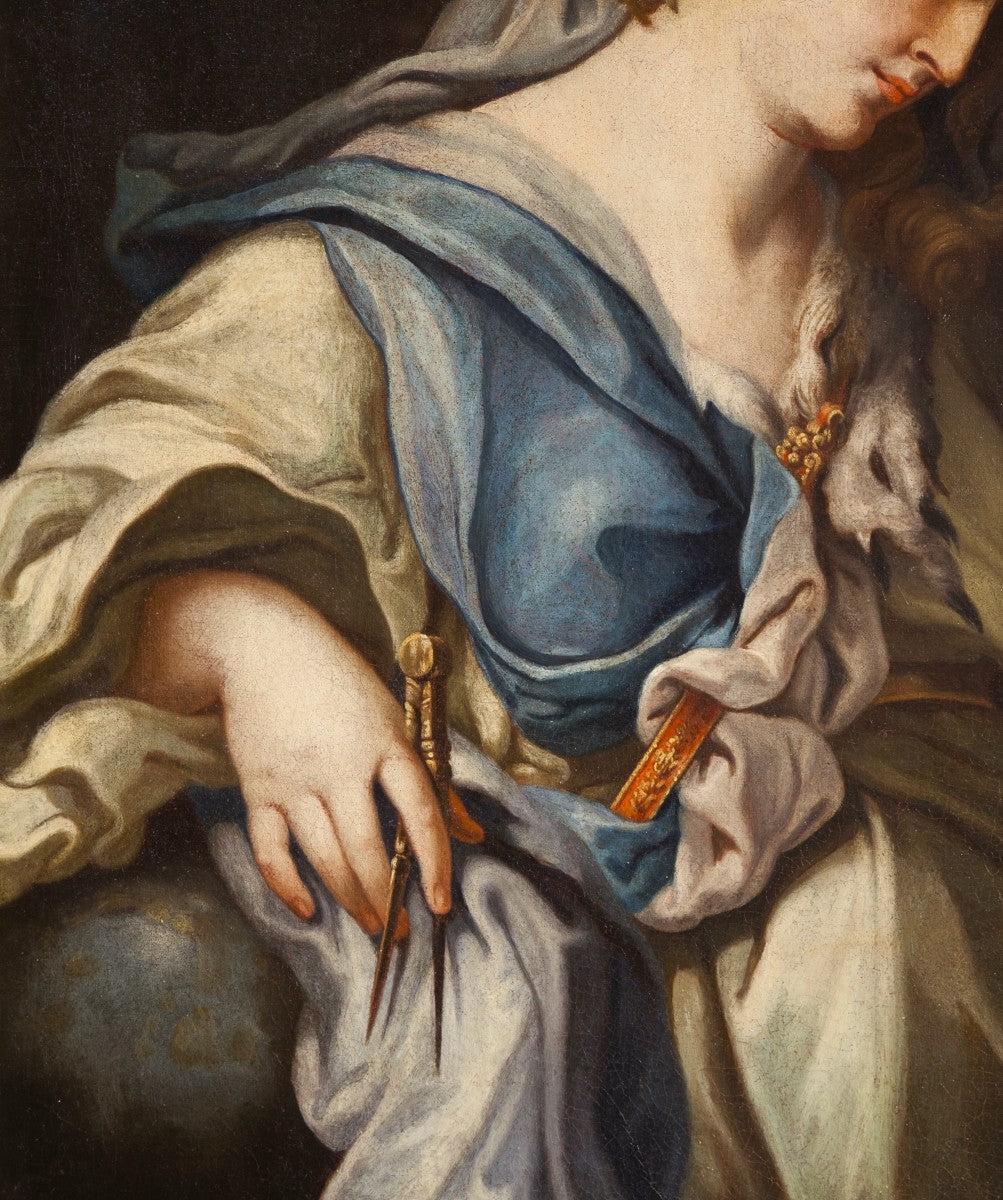Discover who was Urania, the muse of heavens.
Aphrodite Urania, also known as Urania Aphrodite, was a deity in ancient Greek mythology. She was one of the multiple aspects or epithets associated with the goddess Aphrodite, the goddess of love, beauty, and desire. In Greek mythology, Aphrodite had different forms or aspects that represented various facets of her divine influence.
Aphrodite Urania specifically represented the celestial or heavenly aspect of Aphrodite. The name "Urania" is derived from the Greek word "ouranios," meaning "heavenly" or "pertaining to the sky." As Aphrodite Urania, she symbolized the higher and more spiritual aspects of love, focusing on the concept of divine or transcendent love.
Unlike her counterpart Aphrodite Pandemos, who represented earthly and physical love, Aphrodite Urania was associated with intellectual love, higher ideals, and the love between the gods. She was often depicted as a celestial goddess, radiating an aura of purity and ethereal beauty. Aphrodite Urania was believed to inspire poets, artists, and philosophers in their pursuit of spiritual and intellectual love.
Her worship and cult were prevalent in ancient Greece, particularly in Athens. Temples and statues were dedicated to Aphrodite Urania, and followers sought her guidance in matters of divine love and spiritual connection. She represented a more refined and ethereal manifestation of Aphrodite's influence, emphasizing the transcendent qualities of love and beauty.
Overall, Aphrodite Urania was an aspect of Aphrodite that highlighted the celestial and intellectual aspects of love, emphasizing the divine and transcendent nature of this powerful emotion.
Urania, the Greek muse of astronomy and celestial poetry, is typically represented in art and mythology in a few distinctive ways. Here are some common depictions of Urania:
-
Heavenly Symbolism: Urania is often portrayed with celestial attributes, reflecting her association with the stars and the heavens. She is depicted wearing a star-spangled cloak or robe, symbolizing her connection to the celestial realms.
-
Globe and Compass: As the muse of astronomy, Urania is sometimes depicted holding a globe or a celestial sphere, representing her knowledge and mastery of the celestial bodies. She may also be shown with a compass, signifying her role in guiding and inspiring astronomers and explorers.
-
Astronomical Instruments: Urania is occasionally depicted with various astronomical instruments, such as an astrolabe, a quadrant, or a celestial globe. These instruments symbolize her expertise in observing and understanding the movements of the stars and planets.
-
Lyre and Scroll: Like other muses, Urania may be depicted holding a musical instrument, particularly a lyre. This signifies her connection to the arts and poetry. She may also be shown holding a scroll or a book, representing her role in inspiring celestial poetry and knowledge.
-
Serenity and Contemplation: Urania is often portrayed as serene and contemplative, with a calm and focused expression. This reflects her association with intellectual pursuits, deep thought, and the contemplation of the mysteries of the universe.
It's important to note that depictions of Urania can vary across different artistic representations and interpretations. Artists may emphasize different aspects of her character and symbolism based on their creative vision and the specific context in which she is portrayed.
